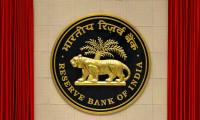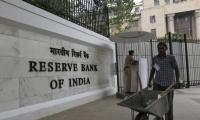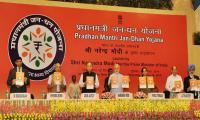India's Financial Sector Outlook: Bright but Vulnerable - Economic Survey
India's financial sector faces a bright future but needs to prepare for vulnerabilities, says Economic Survey 2023-24. Key priorities include reducing financial intermediation costs, promoting MSMEs, and improving insurance and pension coverage.
New Delhi, Jul 22 (PTI) The outlook for India's financial sector appears bright, but it needs to brace for likely vulnerabilities, said Economic Survey 2023-24 tabled in Parliament on Monday.
The Indian financial sector is at a "turnpike moment", it said, adding that the dominance of banking support to credit is being reduced, and the role of capital markets is rising.
For a country that aspires to be a developed nation by 2047, this is a long-awaited and welcome development, it said.
"Being reliant on and exposed to the capital market, however, comes with its challenges and trade-offs. As India's financial sector undergoes this critical transformation, it must also brace for likely vulnerabilities and prepare itself with regulatory and government policy levers to intervene and hedge, as required," it said.
Even as banks, non-banks and corporates battled balance-sheet excesses, the consequences of the credit boom of the first decade of the new millennium and the inevitable bust that followed in the second decade, the broad industry kept advancing the cause of financial inclusion and financial deepening, it said.
"Moving forward, healthier corporate and bank balance sheets will further strengthen private investment. The positive trends in the residential real estate market indicate that the household sector capital formation is increasing significantly," it said.
As India embarks on the vision to become a developed country by 2047, it is imperative that financial intermediation costs decline globally, the Survey prepared by Chief Economic Adviser V Anantha Nageswaran and his team said.
It further said the financial sector needs to support capital formation and promote
trade, business, and investments in MSMEs, enabling them to scale.
"It also needs to provide insurance protection and retirement security to all citizens. The share of insurance and pension fund assets in GDP stands at 19 per cent and 5 per cent, respectively, in India, compared to a high of 52 per cent and 122 per cent in the US and 112 per cent and 80 per cent in the UK, leaving scope for further improvements," it added.
Financial sector firms public or privately owned must become customer-centric. Without that, most quantitative metrics will remain elusive, it recommended.
The Indian financial sector is at a "turnpike moment", it said, adding that the dominance of banking support to credit is being reduced, and the role of capital markets is rising.
For a country that aspires to be a developed nation by 2047, this is a long-awaited and welcome development, it said.
"Being reliant on and exposed to the capital market, however, comes with its challenges and trade-offs. As India's financial sector undergoes this critical transformation, it must also brace for likely vulnerabilities and prepare itself with regulatory and government policy levers to intervene and hedge, as required," it said.
Even as banks, non-banks and corporates battled balance-sheet excesses, the consequences of the credit boom of the first decade of the new millennium and the inevitable bust that followed in the second decade, the broad industry kept advancing the cause of financial inclusion and financial deepening, it said.
"Moving forward, healthier corporate and bank balance sheets will further strengthen private investment. The positive trends in the residential real estate market indicate that the household sector capital formation is increasing significantly," it said.
As India embarks on the vision to become a developed country by 2047, it is imperative that financial intermediation costs decline globally, the Survey prepared by Chief Economic Adviser V Anantha Nageswaran and his team said.
It further said the financial sector needs to support capital formation and promote
trade, business, and investments in MSMEs, enabling them to scale.
"It also needs to provide insurance protection and retirement security to all citizens. The share of insurance and pension fund assets in GDP stands at 19 per cent and 5 per cent, respectively, in India, compared to a high of 52 per cent and 122 per cent in the US and 112 per cent and 80 per cent in the UK, leaving scope for further improvements," it added.
Financial sector firms public or privately owned must become customer-centric. Without that, most quantitative metrics will remain elusive, it recommended.
You May Like To Read
TODAY'S MOST TRADED COMPANIES
- Company Name
- Price
- Volume
- Vodafone Idea L
- 7.98 ( -1.12)
- 72031315
- G G Engineering
- 0.83 ( -4.60)
- 28985254
- Standard Capital
- 0.49 ( 0.00)
- 21559261
- Sharanam Infra
- 0.67 (+ 4.69)
- 21142271
- Alok Industries Ltd.
- 19.55 (+ 18.70)
- 17658950





 © 2025 Rediff.com India Limited. All rights reserved.
© 2025 Rediff.com India Limited. All rights reserved.